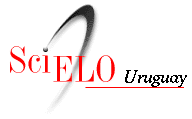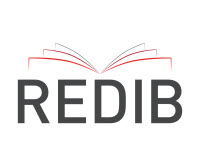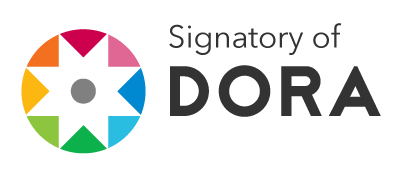Meditaciones filosóficas sobre las entrañas de la Era de la Información
Resumen
Este trabajo representa una mirada reflexiva a las entrañas de la Era de la Información. Sus oportunidades y promesas han sido desviadas a dudosos finales, manipulando a los usuarios de las tecnologías de la información hacia recompensas económicas y poder político. El análisis desde la investigación previa y en curso, permite identificar diferentes maneras de caracterizar la Era de la Información como la Era de la Caverna de Platón (inspirada por Platón y Aristóteles), la Era de la Distracción (inspirada por Heidegger), la Era de la Desinformación (inspirada por la manipulación de los contenidos de Internet para provocar guerras de información y desinformación), la Era del Capitalismo Vigilante (inspirada por el uso que hacen las compañías de tecnologías de la información, de programas informáticos y aplicaciones para manipular el comportamiento de los consumidores),y la Era de los Agravios Exacerbados (inspirada por el uso de los sitios web de Internet y las aplicaciones, para consolidar e inflamar los agravios políticos partisanos, así como para mantener, conquistar o manipular el poder político). Las últimas dos plantean los más grandes peligros para la destrucción de las democracias, los países y el planeta.
Descargas
Citas
Aristotle. (2020). Rhetoric (W. R. Roberts, Trans.). digireads.com.
Benkler, Y., Faris, R., Roberts, H. (2018). Network propaganda: manipulation, disinformation, and radicalization in American politics. Oxford, UK: Oxford University Press.
Bosker, B. (2017). What Will Break People's Addictions to Their Phones? The Atlantic. https://www.theatlantic.com/magazine/archive/2016/11/the-binge-breaker/501122/. (Retrieved November 13, 2020)
Bump, P. (2020). The stunning extent to which Trumpism is centered among Fox News-watching Republicans. Washington Post. https://www.washingtonpost.com/politics/2020/10/19/stunning-extent-which-trumpism-is-centered-among-fox-news-watching-republicans/. (Retrieved November 13, 2020)
Capurro, Rafael. (2020). Pseudangelia — Pseudangelos: On False Messages and Messengers in Ancient Greece. Informatio, 25(1):106-131. DOI: 10.35643/Info.25.1.5. https://informatio.fic.edu.uy/index.php/informatio/article/view/246/249. (Retrieved November 14, 2020)
Chittister, J. (2020). Land of the free, home of the self-centered. National Catholic Reporter Online. https://www.ncronline.org/news/coronavirus/where-i-stand/land-free-home-self-centered. (Retrieved November 14, 2020)
Collins, B. (2017). Trump fans, foiled by google translate, believe 'covfefe' was a secret arabic message. The Daily Beast. https://www.thedailybeast.com/trump-fans-foiled-by-google-translate-believe-covfefe-was-a-secret-arabic-message. (Retrieved August 26, 2020)
Facebook offers a distorted view of American news. (2020). The Economist. https://www.economist.com/graphic-detail/2020/09/10/facebook-offers-a-distorted-view-of-american-news?utm_campaign=the-economist-today. (Retrieved September 14, 2020)
Fisher, M., Taub, A. (2019). How YouTube radicalized Brazil. New York Times. (Retrieved August 29, 2019) https://www.nytimes.com/2019/08/11/world/americas/youtube-brazil.html.
Froehlich, T. J. (2017). A not-so-brief account of current information ethics: the ethics of ignorance, missing information, misinformation, disinformation and other forms of deception or incompetence. BiD: textos universitaris de biblioteconomia i documentació, 39. http://bid.ub.edu/en/39/froehlich.htm doi: http://dx.doi.org/10.1344/BiD2017.39.8 . (Retrieved March 4, 2019)
Froehlich, T. J. (2019). The role of pseudo-cognitive authorities and self-deception in the dissemination of fake news. Open Information Science, 3(1):115–136. https://doi.org/10.1515/opis-2019-0009 .
Froehlich, T. J. (2020). Ten lessons for the age of disinformation. In: K. Dalkir and R. Katz (Eds). Navigating Fake News, Alternative Facts and Misinformation in a Post-Truth World. IGI Global (pp. 36-88). https://www.igi-global.com/gateway/chapter/full-text-pdf/249503.
Froehlich, T. J. (in press). A disinformation-misinformation ecology: The case of Trump. In: Fake News Is Bad News - Hoaxes, Half-truths and the Nature of Today's Journalism. IntechOpen.
Gardner, K. (2018). Social media: Where voices of hate find a place to preach. The Center for Public Integrity. https://publicintegrity.org/politics/social-media-where-voices-of-hate-find-a-place-to-preach/. (Retrieved September 03, 2020)
Gramlich, J. (2020). 5 facts about Fox News. Pew Research Center. https://www.pewresearch.org/fact-tank/2020/04/08/five-facts-about-fox-news/. (Retrieved August 25, 2020)
Grothaus, M. (2018). QAnon's "codes" are probably just random typing, says researcher. Fast Company. https://www.fastcompany.com/90219187/qanons-codes-are-probably-just-random-typing-says-researcher . (Retrieved August 27, 2020)
Harvey, J. (2020, September 10). Lou Dobbs claims Trump 'had a great day.' critics say he's 'delusional.' Huffpost. https://www.huffpost.com/entry/lou-dobbs-trump-great-day_n_5f59a1cac5b62874bc182e18. (Retrieved September 12, 2020)
Healy, J., & Baker, M. (2020). In Oregon, a year of political tumult extends to devastating wildfires. The New York Times. https://www.nytimes.com/2020/09/11/us/fires-oregon-antifa-rumors.html. (Retrieved September 15, 2020)
Heidegger, M. (2010). Being and Time (Stambaugh, J., Trans.). State University of New York Press. (Original work published: 1927).
Ingraham, C. (2019, April 29). Why conservatives might be more likely to fall for fake news. The Washington Post. Retrieved October 26, 2019, from https://www.washingtonpost.com/news/wonk/wp/2016/12/07/why-conservatives-might-be-more-likely-to-fall-for-fake-news/
Kierkegaard, S. (2013). The Sickness Unto Death (W. Lowrie, Trans). Wiseblood Books. (Original work published: 1849).
King James Bible. (2017). King James Bible Online. https://www.kingjamesbibleonline.org/.
LeTourneau, N. (2020, April 29). The Misinformation Being Used to Pressure Us Into Re-Opening the Economy. Washington Monthly. https://washingtonmonthly.com/2020/04/29/the-misinformation-being-used-to-pressure-us-into-re-opening-the-economy/. (Retrieved November 22, 2020)
Malik, N. (2020, November 11). Not every Trump voter is racist or misled. There's a rational Trump voter too. The Correspondent. https://thecorrespondent.com/790/not-every-trump-voter-is-racist-or-misled-theres-a-rational-trump-voter-too/47019208940-41e70894. (Retrieved November 11, 2020)
Mooney, C. (2011). The science of why we don't believe science. Mother Jones. https://www.motherjones.com/politics/2011/04/denial-science-chris-mooney/?fbclid=IwAR0joSt0kxWLUlWut1AMYwn0xT3d_wEp9l79mhVySrs26pi3WvtbW3pyptk. (Retrieved August 22, 2020)
Monroe, J. (2020). What to Learn from 'The Social Dilemma'. Newport Academy. https://www.newportacademy.com/resources/empowering-teens/social-dilemma/. (Retrieved November 13, 2020)
Nichols, T. M. (2017). The death of expertise: The campaign against established knowledge and why it matters. New York, NY: Oxford University Press.
Orlowski, J. (2020). The Social Dilemma. Drama, Documentary. Exposure Labs.
Plato. (2008). Collected works of Plato (B. Jowett, Trans.). Charleston, SC: BiblioBazaar.
Plato. (1987). Gorgias (D. Zeyl, Trans.). Indianapolis, IN: Hackett Publishing.
Qiu, L. (2020, November 19). How Sidney Powell inaccurately cited Venezuela's elections as evidence of U.S. fraud. The New York Times. https://www.nytimes.com/2020/11/19/technology/sidney-powell-venezuela.html. (Retrieved November 22, 2020)
Reich, R. (2019, November 03). Facebook and Twitter spread Trump's lies – they must be broken up. The Guardian. https://www.theguardian.com/commentisfree/2019/nov/02/facebook-twitter-donald-trump-lies. (Retrieved September 02, 2020)
Rieh, S. Y. (2010). Credibility and cognitive authority of information. In: Bates M. & Maack M. N. (Eds.) Encyclopedia of Library and Information Sciences, 3rd Ed. (pp. 1337–1344), New York: Taylor and Francis Group, LLC. http://hdl.handle.net/2027.42/106416. (Retrieved August 18, 2017)
Robb, A. (2020, July 20). Anatomy of a fake news scandal. RollingStone. https://www.rollingstone.com/feature/anatomy-of-a-fake-news-scandal-125877/. (Retrieved September 15, 2020)
Smith, T. (2019). Foxocracy: Inside the Network’s Playbook of Tribal Warfare. New York, NY: Diversion Books.
Stanley-Becker, I. (2020, August 02). How the Trump campaign came to court QAnon, the online conspiracy movement identified by the FBI as a violent threat. The Washington Post. https://www.washingtonpost.com/politics/how-the-trump-campaign-came-to-court-qanon-the-online-conspiracy-movement-identified-by-the-fbi-as-a-violent-threat/2020/08/01/dd0ea9b4-d1d4-11ea-9038-af089b63ac21_story.html. (Retrieved August 22, 2020)
Stelter, B. (2020). Hoax: Donald Trump, Fox News and The Dangerous Distortion of Truth. Atria Books.
Sullivan, K. (2019, May 13). The Fox "News" lie: Fox's "news" side pushed misinformation every day for four months straight. Media Matters for America. https://www.mediamatters.org/fox-news/fox-news-lie. (Retrieved August 26, 2020)
Tufekci, Z. (2018, March 10). YouTube, the great radicalizer. The New York Times. https://www.nytimes.com/2018/03/10/opinion/sunday/youtube-politics-radical.html. (Retrieved August 29, 2019)
Vosoughi, S., Roy, D. & Aral, S. (2018, March 9). The spread of true and false news online. Science. 359(6380):1146-1151.
Wemple, E. (2019, April 11). Yes, Fox News matters. A lot. The Washington Post. https://www.washingtonpost.com/opinions/2019/04/11/yes-fox-news-matters-lot/?noredirect&utm_term=.8ad57d66b52f. (Retrieved April 14, 2019)
Wijnberg, R. (2020, April 16). How the truth became whatever makes you click. The Correspondent. https://thecorrespondent.com/410/how-the-truth-became-whatever-makes-you-click/9567807150-326405ae. (Retrieved August 29, 2020)
Wikipedia. (2020). Antifa. https://en.wikipedia.org/wiki/Antifa_(United_States). (Retrieved November 11, 2020)
Wilson, P. (1983). Second-hand Knowledge: an Inquiry into Cognitive Authority. Westport, CT: Greenwood Press.
Wolf, Z. (2020, October 09). A GOP senator has gone public against democracy. CNN Politics. https://www.cnn.com/2020/10/09/politics/what-matters-october-8/index.html. (Retrieved November 15, 2020)
Wong, J. C. (2020, August 11). Revealed: QAnon Facebook groups are growing at a rapid pace around the world. The Guardian. https://www.theguardian.com/us-news/2020/aug/11/qanon-facebook-groups-growing-conspiracy-theory. (Retrieved September 11, 2020)
Zuboff, S. (2020). The age of surveillance capitalism: The fight for a human future at the new frontier of power. New York: PublicAffairs.
Derechos de autor 2021 Thomas J. Froehlich

Esta obra está bajo licencia internacional Creative Commons Reconocimiento 4.0.







.jpg)




















